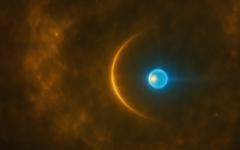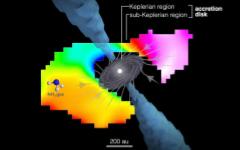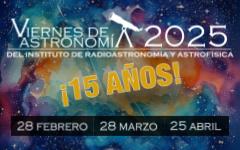
The Institute of Radio Astronomy and Astrophysics (IRyA) at UNAM, Campus Morelia, announces its new Basic Astronomy Course 2025, which will take place from August 4th to 8th at the Institute's auditorium, located on the Antigua carretera a Pátzcuaro in front of Tenencia Morelos, from 5:00 PM to 7:00 PM.

Vanessa Yanza from IRyA*, UNAM Morelia, led a team that discovered a mysterious object that could be a huge star running away from its birthplace, or it could also be two young stars with strong winds colliding with each other.

Carlos Carrasco González of IRyA* is part of a research team that captured a large young star “red-handed,” growing rapidly by gathering material from a disk of gas and dust around it, much in the same way that small young stars grow.

The James Webb Space Telescope observed for the first time some very, very distant, yet very massive—that is, very “fat”—galaxies. But at that time, the Universe was very young, so young that these galaxies shouldn't have had time to become so “heavy,” based on what we thought we knew about how galaxies form and the history of the Universe. They were called “impossible galaxies,” but are they really?

When we talk about a lack of water, we mean fresh water for human consumption, as well as farming and ranching. But in the universe water is in many more places that we can imagine. At the same time, it is a very special substance, even rare, with very different properties compared to others.




